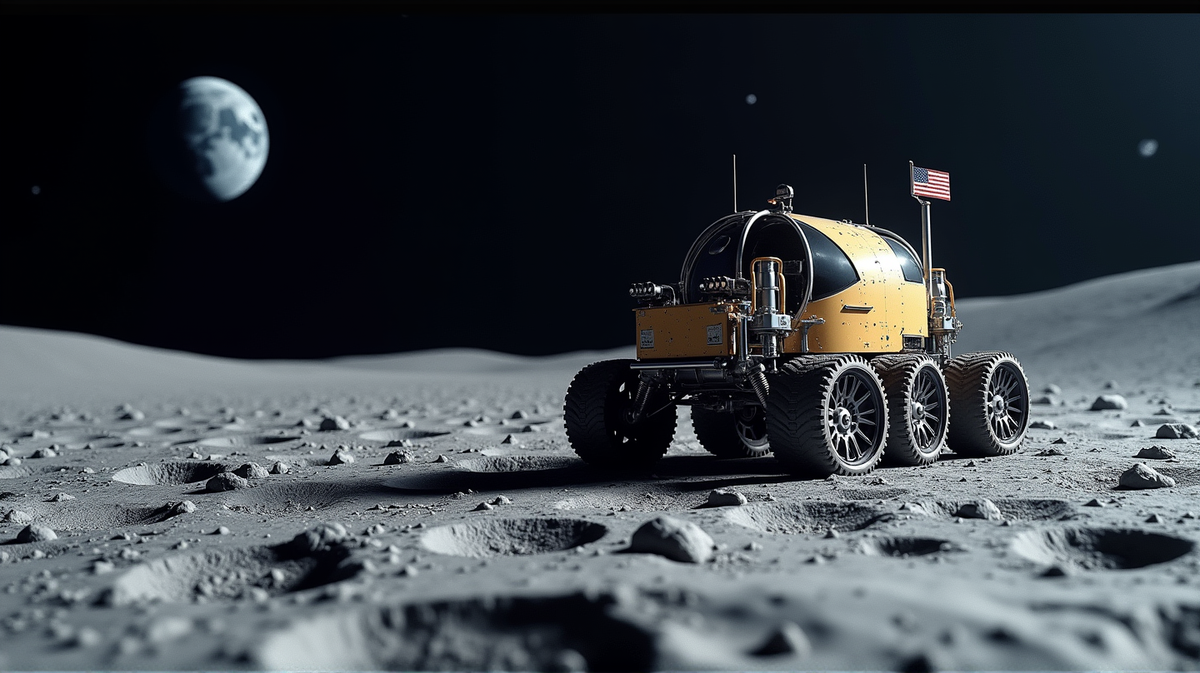KERI Paves the Path for Lunar Rover Independence by 2032

In a captivating leap towards technological sovereignty, the Korea Electrotechnology Research Institute (KERI) embarks on a mission that mirrors both ambition and national pride. By synergizing efforts with the Unmanned Exploration Laboratory (UEL), Korea’s sole rover manufacturing marvel, KERI is venturing into new realms of lunar exploration technology. The aim? To localize key components of lunar rovers, ensuring Korea’s stronghold on this frontier by 2032.
Empowering the Future: The Electric Powertrain Saga
Electric powertrains serve as the heart of lunar rovers, and yet, these essential components have been an import burden too hefty to bear. As Korea sets a goal to launch a domestically created lunar lander by 2032, KERI focuses on transferring their robust electric powertrain technology to UEL. As noted by KERI, these powertrains are not only highly specialized but are a financial strain, costing over tenfold when compared to industrial counterparts, with procurement often complicated by export restrictions. This partnership lays the groundwork for independence and innovation on Korea’s terms. According to Businesskorea, this venture is pivotal, more than doubling Korea’s footsteps in the space exploration sector.
A Legacy of Innovation: KERI’s Journey to Power the Skies
Since the early 2000s, KERI has been a forerunner in developing cutting-edge technologies for land and marine vehicles, pivoting in 2018 to take strides into the electric powertrain market for drones and urban air mobility (UAM). By collaborating with UEL, KERI not only seeks to enhance rover capabilities but aims to solidify its bearing as a trailblazer in this niche. Lee Ji-young, guiding KERI’s Aviation Mobility Propulsion Research Team, shares, “Our participation signifies a fusion of innovation and collaboration that strengthens our path to the stars.”
Dreaming Beyond: The Vision for 2032
This collaboration extends beyond mere technology transfer; it is a confluence of visions. By 2032, Korea aspires to have overcome hurdles of dependency, crafting not just lunar technology but a legacy of exploration. Through the meticulous division of expertise—UEL focusing on rover systems and KERI on component development—the dream of a domestically powered lunar exploration vehicle becomes tangible.
Envisioning Tomorrow: The Power of Partnership
As the tides of technological dependency shift, the joint venture between KERI and UEL heralds a dawn of unparalleled opportunity. Situated in a world where national advancement hinges on innovation and resourcefulness, the partnership epitomizes a united march towards space, fueled by a shared commitment to exploration and discovery. The cosmic journey awaits—all eyes on Korea, with wheels ready to traverse the unknown, steered by homegrown prowess.





